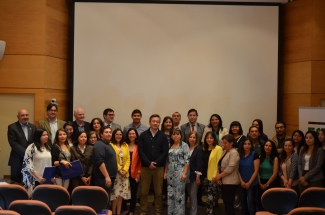Do immigrants increase crime? Spatial analysis in a middle-income country
The last decade has seen a significant global increase in immigration. This large growth has caused an increasing opposition to immigration in local populations in many parts of the world, partly because of a commonly held belief that immigration increases crime. Using data from Chile, spanning 10 years, from 2005 to 2015, we analyze the relationship between immigration and crime through a dynamic Spatial Durbin Model (SDM), which accounts for the possible bias for omitted variables.


